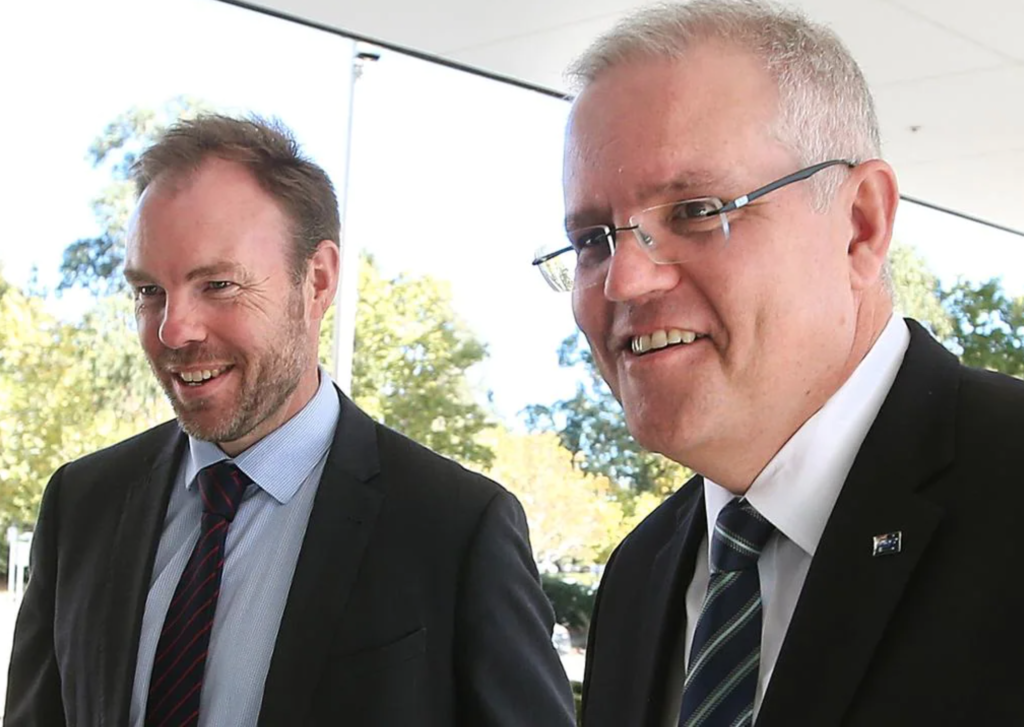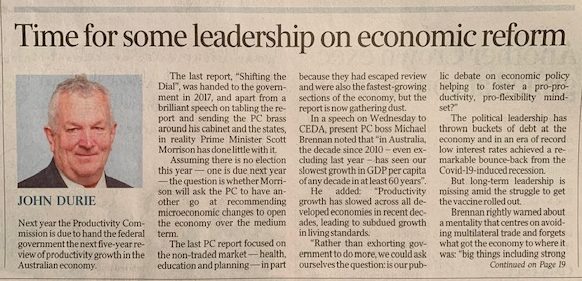Article by John Durie courtesy of the Australian

Next year the Productivity Commission is due to hand the federal government the next five-year review of productivity growth in the Australian economy.
The last report, “Shifting the Dial”, was handed to the government in 2017, and apart from a brilliant speech on tabling the report and sending the PC brass around his cabinet and the states, in reality Prime Minister Scott Morrison has done little with it.
Assuming there is no election this year — one is due next year — the question is whether Morrison will ask the PC to have another go at recommending microeconomic changes to open the economy over the medium term.
The last PC report focused on the non-traded market — health, education and planning — in part because they had escaped review and were also the fastest-growing sections of the economy, but the report is now gathering dust.
In a speech on Wednesday to CEDA, present PC boss Michael Brennan noted that “in Australia, the decade since 2010 – even excluding last year – has seen our slowest growth in GDP per capita of any decade in at least 60 years”.
He added: “Productivity growth has slowed across all developed economies in recent decades, leading to subdued growth in living standards.
“Rather than exhorting government to do more, we could ask ourselves the question: is our public debate on economic policy helping to foster a pro-productivity, pro-flexibility mindset?”
The political leadership has thrown buckets of debt at the economy and in an era of record low interest rates achieved a remarkable bounce-back from the Covid-19-induced recession.
But long-term leadership is missing amid the struggle to get the vaccine rolled out.
Brennan rightly warned about a mentality that centres on avoiding multilateral trade and forgets what got the economy to where it was: “big things including strong fiscal buffers, a reasonably flexible labour market, openness to trade, well-capitalised banks, independent monetary policy, credible public sector institutions and a targeted, but redistributive tax-transfer system.
“The real cost of government spending is measured in the labour, capital and materials used that would otherwise be employed elsewhere, such as in pursuit of some private entrepreneurial aim — innovation or investment,” he added
Brennan is skilled in macroeconomics, which is important, but so is microeconomic reform — which, as he noted, is a lot of little things backed by the right culture.
He didn’t need to say it and was too polite to say it but some federal leadership on the issue would help – some commitment to reform, as evidenced by action on PC reports and a new long-term review.

